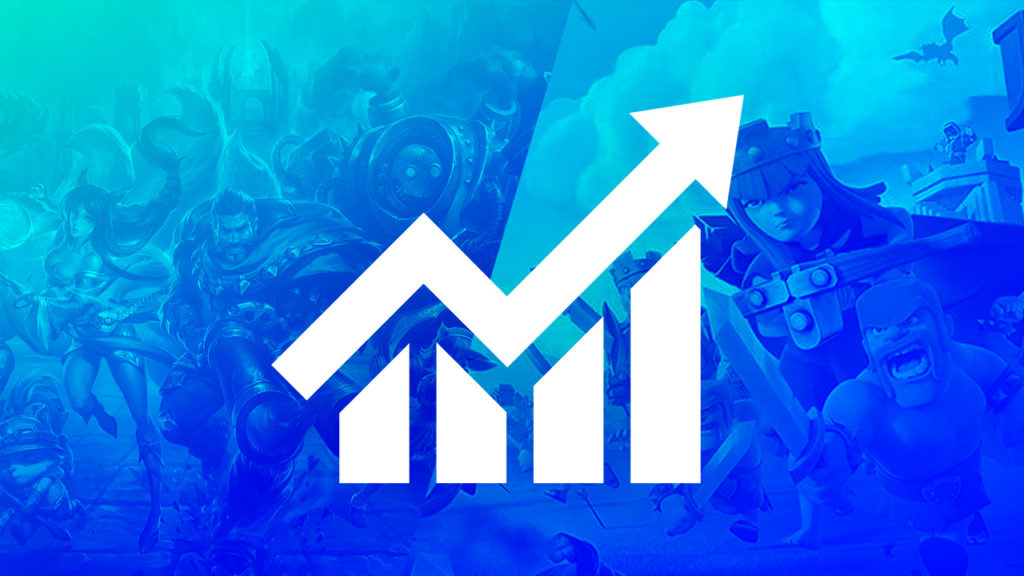Newzoo has revealed the top 25 public companies by game revenue in 2017, illustrating the growth of mobile gaming worldwide and a strong Chinese market.
The top 25 public companies, as determined by game revenues, generated a total of $94.1 billion in 2017, a 29 percent increase over the previous year. To illustrate the sheer earning power of these brands, the top 25 captured 77 percent of the $121.7 billion global games market.
Still On Top
Tencent is the number one gaming company in the world for the fifth year running. The Chinese brand earned $18.1 billion—15 percent of the global games market and outpacing the next highest company by over $7 billion. Of course, it doesn’t hurt that Tencent now owns Riot Games (League of Legends) in addition to its already massive library of mobile titles.
Newzoo attributed Tencent’s domination of the Chinese market to “smart, diverse investments” which allowed the company to retain a firm grip on both PC and mobile social platforms in 2017. Tencent owns the most popular social media platform in China, making it “the perfect gateway to reach the multiple hundreds of millions of gamers in China,” Newzoo market consultant Tom Wijman told AListDaily.
Tencent also benefits from restrictions set forth by the Chinese government that does not allow foreign companies to publish games in China without a local publishing partner.
Sony, which comes in second on the list at $10.5 billion in 2017, not only develops its own AAA titles but owns the PlayStation Store publishing platform—taking a cut of every transaction.
“While the industry has been announcing the ‘death of single player’ games for years, Sony is still releasing multiple single player titles for PlayStation every year which boost their game sales,” said Wijman. “Last year it was Horizon: Zero Dawn and Uncharted, and so far this year it’s God of War, etc.”
Sony, Apple, Microsoft and Activision Blizzard round out the top five companies—unchanged from last year.
Mobile Movement
Mobile accounted for 46 percent of revenues earned by the top 25 companies, compared to 41 percent in 2016. Interestingly, 13 out of the top 25 companies earned the majority of their revenues through mobile gaming last year.
Apple and Google both had a record year in terms of game revenues, earning $8.0 billion and $5.3 billion, respectively. Apple is now the third-largest gaming company in the world, illustrating the advantage of owning its own game distribution platform.
Even traditional game publishers are investing in mobile, with great success. Bandai Namco, Konami, Sega, and Square Enix, now earn more through mobile games than console, Newzoo observed.
Konami, known for its popular console franchises like Metal Gear and Silent Hill, now earns more than four times as much on mobile than it does on console with titles such as Yu-Gi-Oh! Duel Links.
Mobile-first Chinese publishers Perfect World and 37 Interactive joined the top companies list for the first time at number 23 and 25, respectively.
While mobile is driving most revenue growth in the industry, it’s not driving the entire industry, Wijman said. “PC still has a massive contribution—even if it’s only as the most innovative platform in the industry. Esports, VR, cloud gaming, all these innovations that will shape the industry in future years started on PC. Console games are still massively popular in established, mature gaming markets such as North America, Europe, and Japan.”
Editor’s note: This article was updated to include statements not received before publishing time.
Consoles Are Still Kicking
Growth in the mobile sector is impressive, but gamers aren’t ready to put down those controllers just yet. The big three platform companies—Sony, Microsoft and Nintendo—accounted for 57 percent of all console revenues in 2017.
Nintendo’s revenues rose by 98 percent year on year in 2017, driven by its Switch console.
Together, Sony, Microsoft and Nintento continued to outperform the global console market, earning an increasing share of revenues through third-party sales in their online stores.

